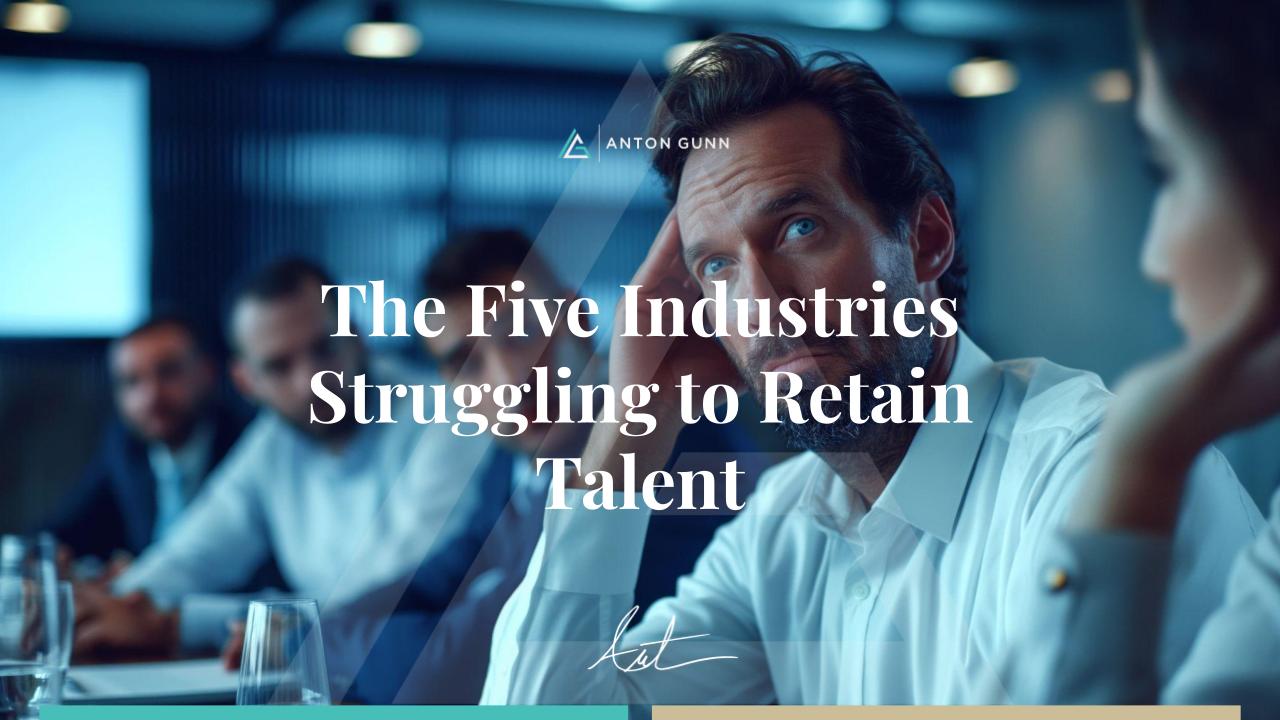As a keynote speaker in multiple industries, I know talent retention and workplace culture have become the battlegrounds for organizational success. Companies with great leaders and an inclusive culture are always more productive, more engaged, and outperform their peers. This focus creates a race to the top for how they can attract more top talent and keep them engaged and loyal. However, I have also seen plenty of organizations that can’t keep their teams engaged and productive. As a result, they struggle with high turnover rates, disengaged employees, poor productivity, and a culture that fails to inspire. These challenges are widespread and are dragging whole industries down. What has me so concerned is that the overwhelming majority of all employees in the United States work in the sectors that are on the same Struggle Bus of Retention and Great Workplace Culture. Most people are afraid to talk about the challenges in these industries. However, nearly 70 million Americans work in these industries. So, I want to review the top five sectors struggling the most with talent retention and workplace culture—and why they’re finding it so challenging to recruit and retain the talent they desperately need.
1. Banking & Financial Services
Banking & Financial services have long been known for their high-pressure environments and demanding workloads. While the sector offers lucrative pay and career advancement for 9 million people, it also struggles with significant turnover. The industry’s cutthroat nature, long hours, and constant pressure to meet targets can create a toxic work culture. Younger millennials and Gen Z, in particular, are less willing to sacrifice their personal lives for a paycheck, leading to a talent exodus. Additionally, the industry’s historical need for more focus on diversity and inclusion has alienated many potential hires who seek a more equitable and supportive workplace culture.
2. Healthcare
Healthcare is one of the most critical sectors in society, yet it faces a significant talent retention crisis for its 22.5 million employees. The pandemic has exacerbated an already challenging environment, leading to burnout, stress, and workforce shortages. The intense demands placed on healthcare workers—coupled with inadequate staffing, long hours, and emotional exhaustion—have driven many to leave the profession. Moreover, the industry’s hierarchical culture often leaves little room for innovation or employee engagement, further alienating talent. As a result, healthcare organizations struggle to maintain a stable workforce, let alone build a culture that attracts and retains top talent.
3. Technology
Despite its rapid growth and innovation, the technology sector is grappling with a severe talent retention problem. High competition for skilled workers, especially in fields like software development, cybersecurity, and data science, means that these 5 million employees often jump ship for better offers. The allure of startups, which promise greater flexibility and creative freedom, draws talent away from established tech giants. Additionally, the “move fast and break things” culture prevalent in tech can lead to burnout, with employees feeling overworked and undervalued. This relentless pace and a lack of meaningful work-life balance have led to a revolving door of talent in many tech companies.
4. Retail
Retail is one of the hardest-hit industries regarding talent retention and culture. With the rise of e-commerce, traditional brick-and-mortar retailers face intense pressure to adapt and compete. Unfortunately, many retail jobs are low-paying, offer little room for advancement, and require long hours with minimal benefits for 15.5 million people. This combination leads to high turnover as employees leave for opportunities in other industries. Moreover, the customer-first focus in retail often comes at the expense of employee well-being, creating a culture where workers feel undervalued and expendable.
5. Hospitality
The hospitality industry, with 16.8 million people, is another sector facing an uphill battle in talent retention. Known for its long hours, low wages, and physically demanding work, hospitality jobs have traditionally had high turnover rates. The COVID-19 pandemic exacerbated these challenges, with many workers leaving the industry entirely for more stable and less stressful opportunities. Additionally, the industry’s emphasis on customer satisfaction often means that employees are expected to go above and beyond, often without adequate recognition or compensation. This leads to a work culture that fails to engage or inspire long-term loyalty.
Why These Industries Are Struggling
Across these industries, several common factors contribute to their talent retention and workplace culture struggles:
- Burnout and Overwork: High demands, long hours, and a lack of work-life balance lead to employee burnout, driving talent out the door.
- Lack of Engagement: Employees often feel undervalued and disengaged, particularly when their work environments fail to offer meaningful opportunities for growth or recognition.
- Cultural Misalignment: Many companies in these sectors have not adapted to the changing expectations of the workforce, particularly regarding flexibility, diversity, and inclusion.
- Competitive Pressures: In highly competitive industries, focusing on short-term results often undermines long-term talent retention strategies.
- Inadequate Compensation and Benefits: Low wages and minimal benefits, particularly in sectors like retail and hospitality, make it difficult to retain employees, who often leave for better-paying opportunities.
The Bottom Line
Talent retention and workplace culture are critical challenges that no organization can afford to ignore, especially in today’s rapidly changing environment. Industries like healthcare, technology, financial services, retail, and hospitality are all grappling with these issues, and the stakes couldn’t be higher. Companies that fail to address the root causes of these problems risk losing their most valuable asset: their people.
I spend a lot of time studying these dynamics across industries. As a leadership and culture ethnologist, my goal is to build world-class workplaces where companies thrive because of their culture and leadership. Over the years, I’ve seen firsthand how organizations can turn these challenges into opportunities for growth and transformation. If you’re struggling with talent retention and culture in your organization, you’re not alone—and there are solutions. Let’s continue the conversation. Over the next several weeks, we will dive deeper into each of these industries and their challenges. We will explore how to address them and build a workplace where employees don’t just stay—they thrive.
If you’re looking for a speaker to inspire and guide your organization toward a healthier company culture, consider booking me for your next event. Also, don’t forget to connect with me on LinkedIn.







